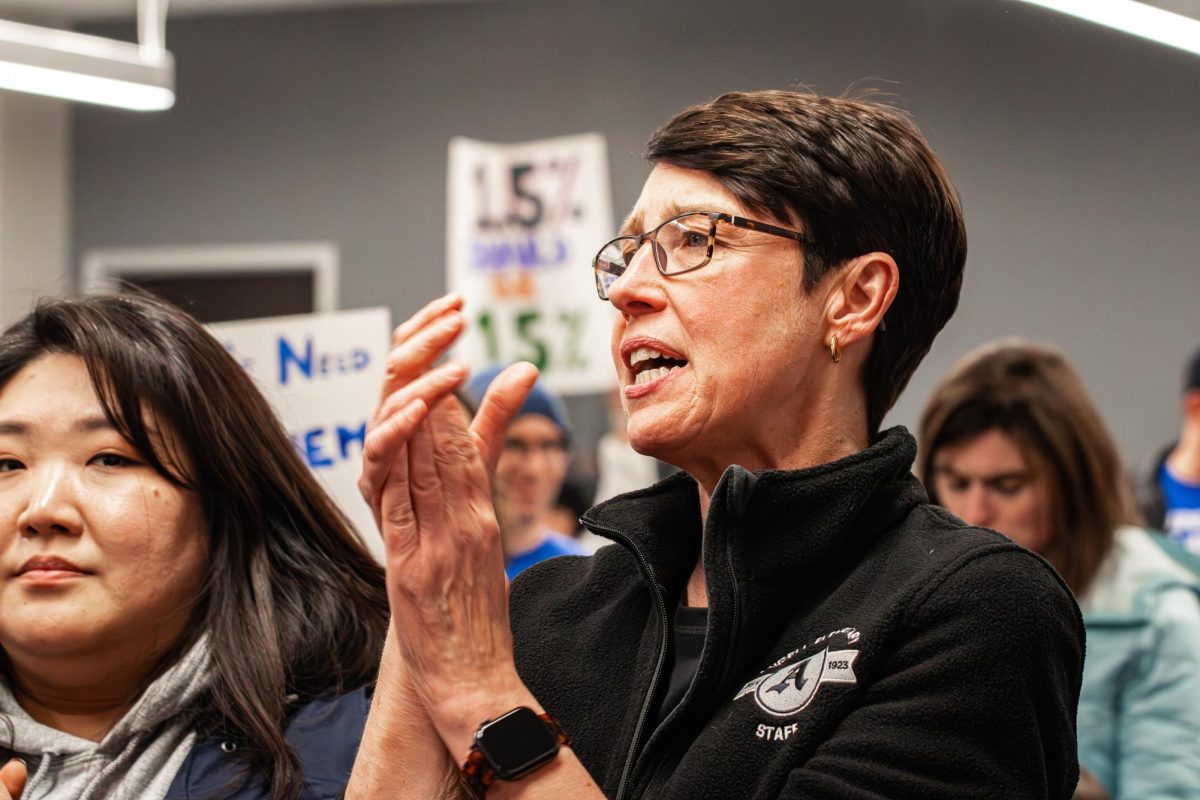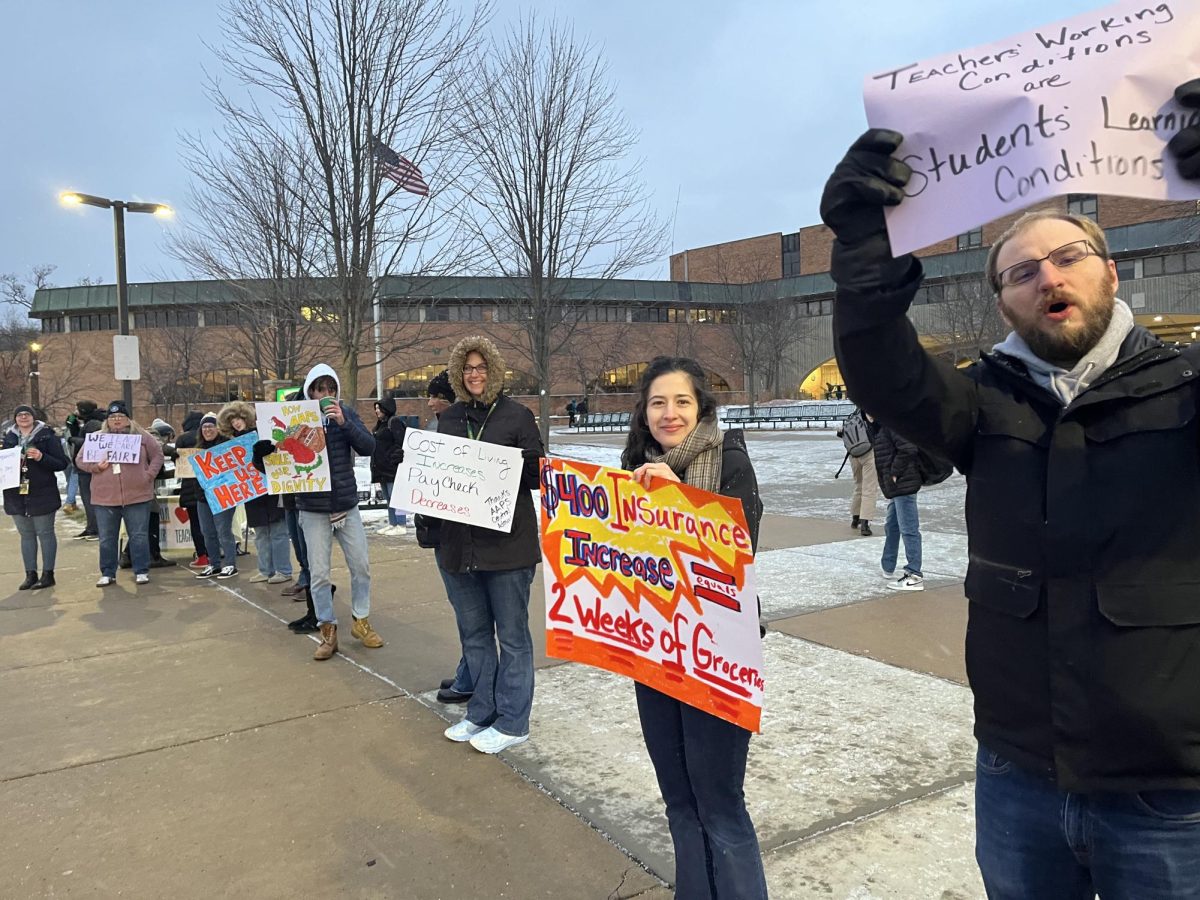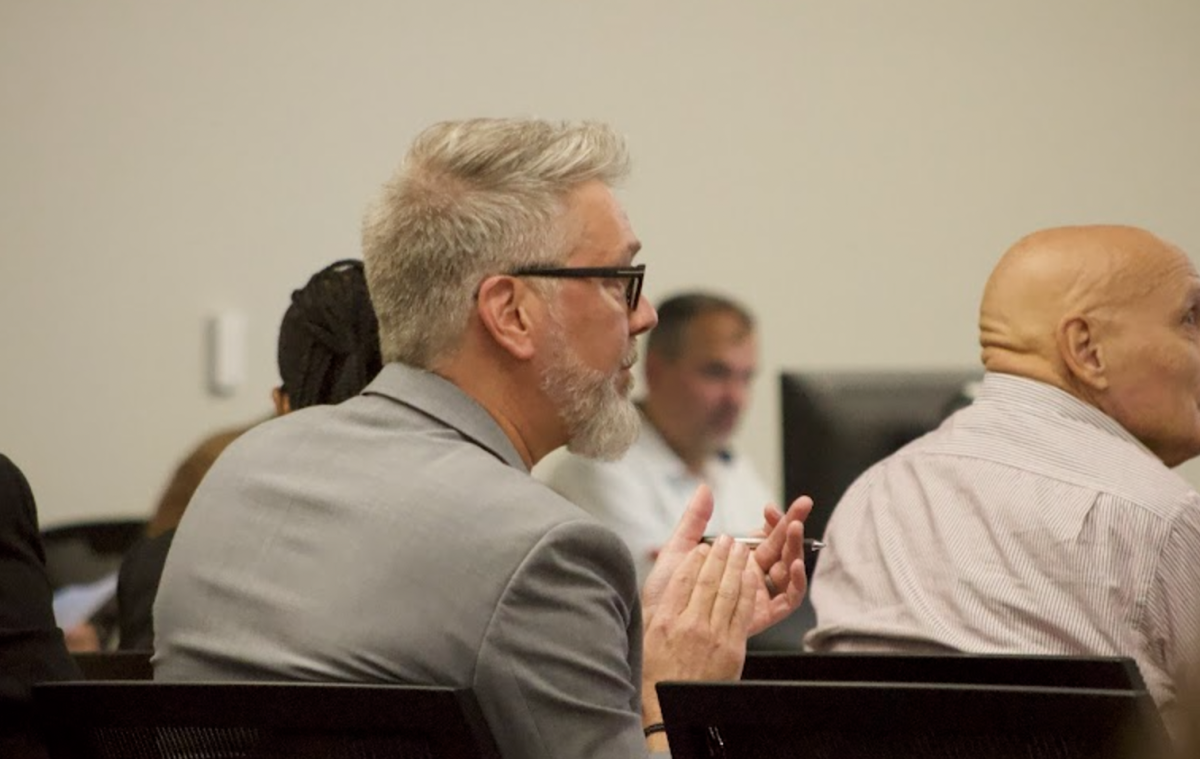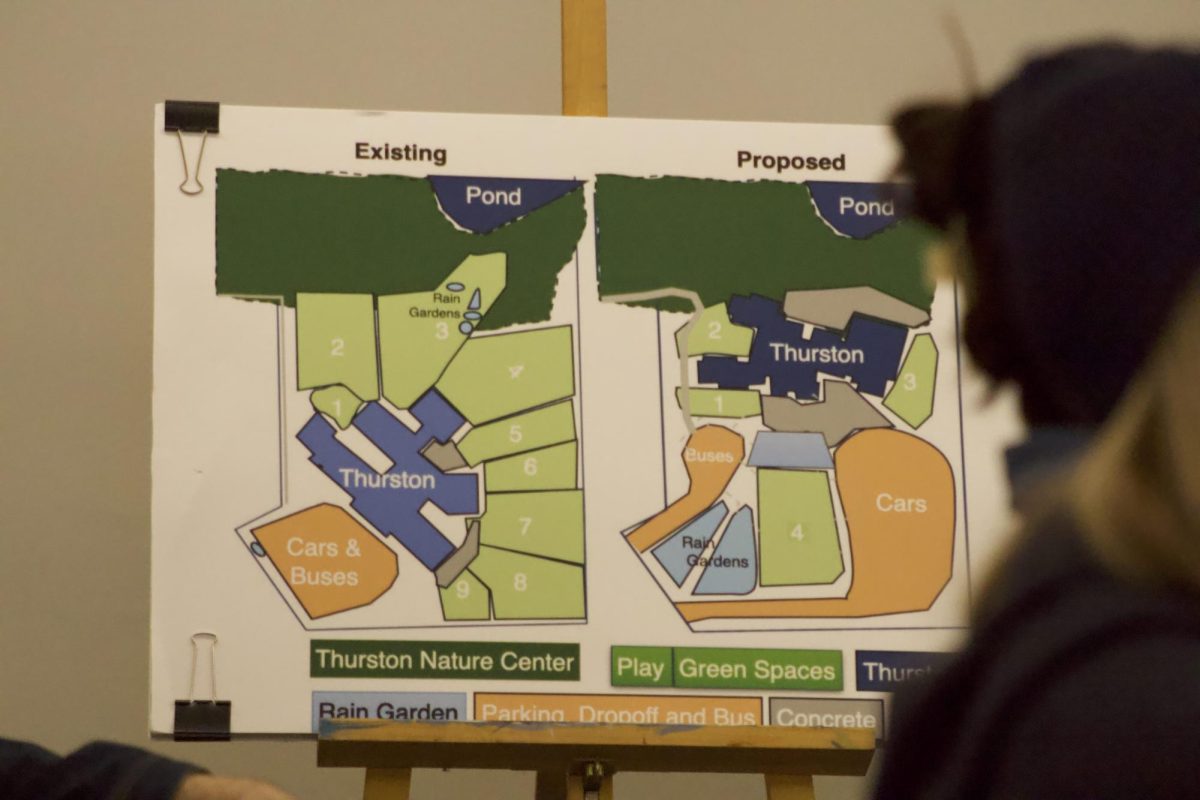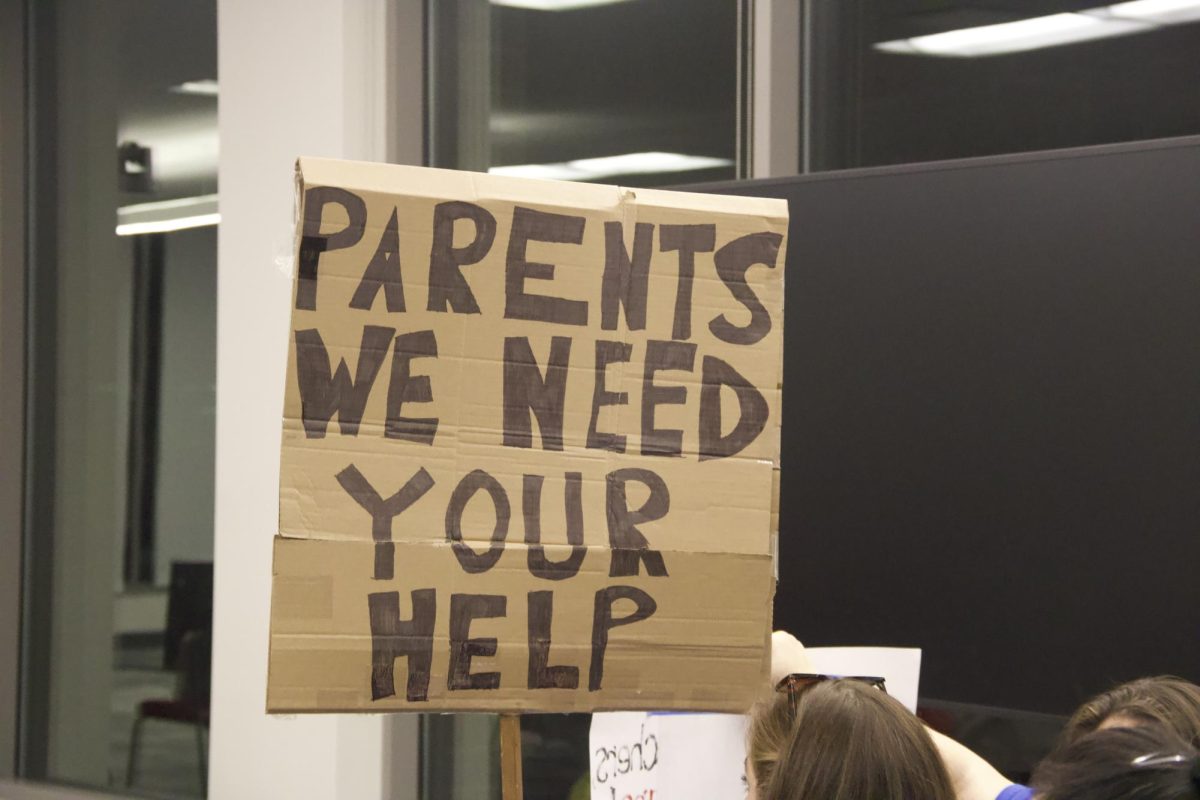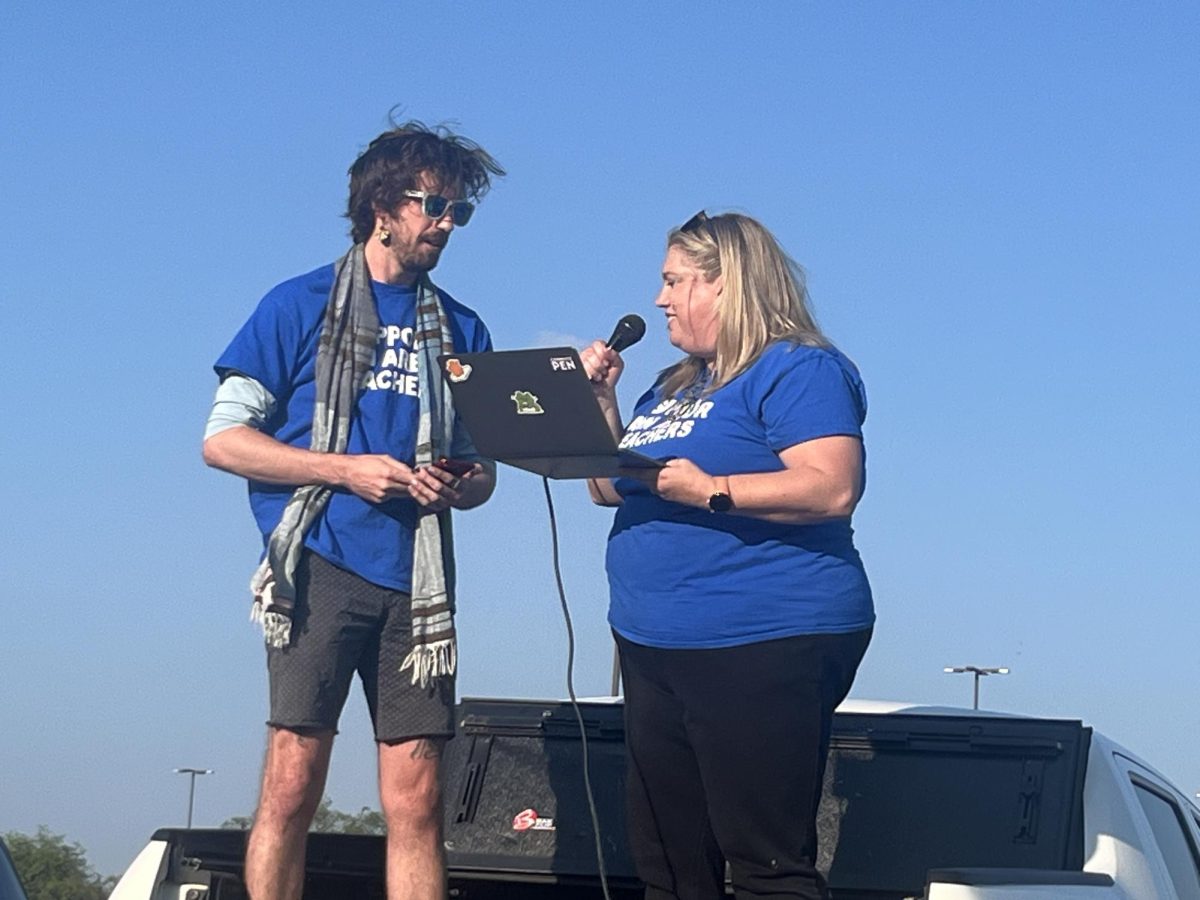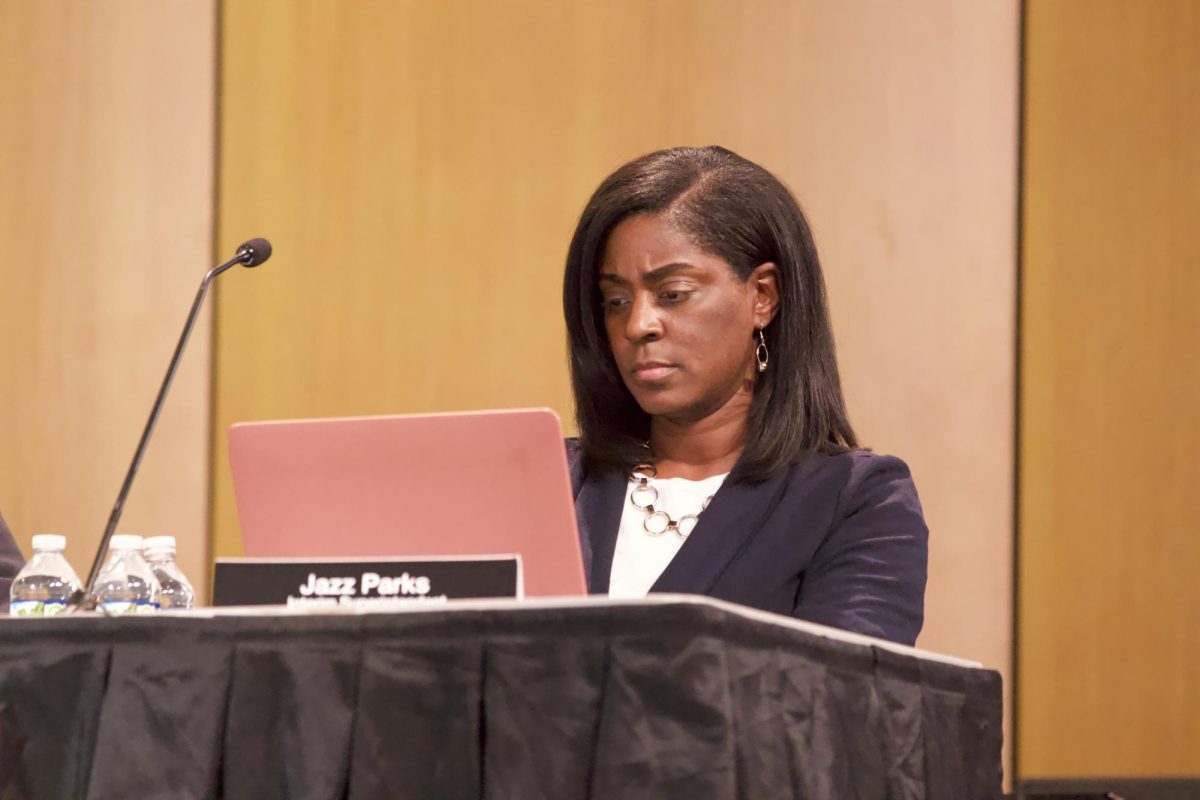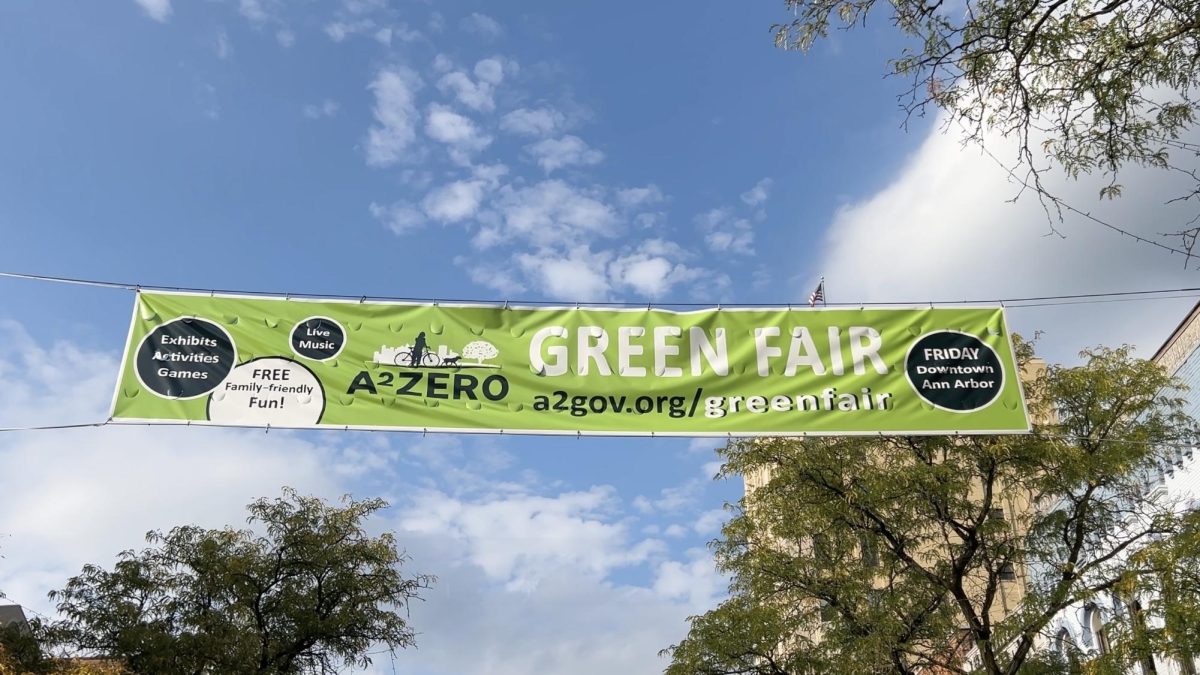When Huron English teacher Daniel Crowley was asked as a kid what he wanted to be when he grew up, he responded that he wanted to scoop ice cream.
“Don’t you want to own the ice cream shop?” his dad responded.
“No, that’s way too much of a headache,” 8-year-old Crowley responded. “I just want to scoop ice cream. That sounds fun.”
That desire to love his career stuck with him. But instead of ice cream, he found a passion for education. And he has fun. But in the last year, he’s been faced with the reality that he might not be able to afford to do what he loves long term. At the beginning of the new calendar year, healthcare prices shot up for teachers.
The district funding is tied to a bill called PA 152 that stated that the district would only pay 0.2% more of the healthcare cost this year. According to Ann Arbor Education Association (the AAPS Teacher’s Union) President Fred Klein, that amounted to about an additional $30 for the whole year. However, the cost of the healthcare premiums themselves increased drastically this year. Some plans were double the cost.
“The amount of money that we’re making isn’t changing, so it’s essentially what equates to a pay cut,” AAEA Action Team Chair and Huron teacher Sarah Anton said.
This has been especially difficult for teachers, given the financial situation the district has been dealing with following the $20.4 million budget cut made by the AAPS School Board last year.
“All teachers are really upset,” Klein said. “The people in the district that are making the most money are paying a lot less than teachers and principals. We’re subsidizing lower health care costs for all the other bargaining units in the district. And that has to change.”
Three new plans were presented to the teachers to try to reduce the amount that teachers paid out of pocket. Teachers could choose to pay less upfront, but if something were to happen where they had to use their healthcare, they would pay more overall in the end.
Many teachers had to make major decisions of what to cut out from their budget.
“[They might cut] something like groceries, it could be a vacation,” Anton said. “It could be not going to the doctor because you can afford the insurance, but maybe not the bills that come with it. They’re not saving for retirement, not saving for their kids’ college. There are teachers that feel that it’s not financially feasible to work in AAPS anymore because it costs you more than you make to work here.”
Surrounding districts are offering higher teacher pay and better benefits.
Huron English teacher Letitia Simmons tries to model “good citizenship” by being active at board meetings.
“We are going to board meetings to say [to our students], ‘You need to come and be active for your community,” she said.
These constant financial fluctuations are putting a lot of strain on the teachers.
“We’re not okay,” Simmons said with tears in her eyes. “We’re just not okay.”
This isn’t the first time something like this has happened in the state of Michigan.
Huron Newspaper and Yearbook teacher Sara-Beth Badalamente left her last school, Grand Ledge High School, in 2015 because of financial issues that had multiple parallels to what AAPS is seeing now. They started with teacher layoffs and frozen pay steps. The next year, teachers lost planning hours and were given subpar insurance plans, and Badalamente decided to leave.
“I sobbed [when I left],” she said. “My publications staff were on fire for journalism, and I had to call them all in and say I was leaving because I couldn’t afford to pay my bills on the teacher salary that I had there.”
Badalamente says that Ann Arbor has a much stronger Teacher’s Union. She also sees a difference in organization of School Board meetings and communication with the bargaining team.
“We need to protect our teachers and our staff in the classroom so that the education can stay the way it is,” Badalamente said. “When teachers have to have second jobs to pay their bills, it impacts them as a person and their classroom.
Although teachers’ healthcare plans for 2025 are set, there is one source of possible support from a currently stalled bill. House Bill 6058, introduced on Nov. 12, 2024, would require Michigan public sector employers to pay 80 percent of employee healthcare costs if passed. This would mean the AAPS district would have to pay around 20 percent more of teacher healthcare costs
The Michigan House of Representatives has not yet sent it to Michigan Governor Gretchen Whitmer to sign.
“We have been asking all teachers to reach out to state representatives, to Governor Whitmer, to try to encourage them to act on this,” Huron Math teacher Caroline Williams said.
Teachers, like Crowley, find a lot of joy from their profession.
“Teaching for me really became an ‘ice cream-scooping’ profession where I can do this one thing my whole life that I love doing,” he said. “It’s such a privilege to have my job be something I love that much.”
But Crowley worries for the next generation of educators.
“When students show an interest in teaching, which is more and more rare, I have a really hard time saying go for it,” he said. “ Until they know full well the sacrifices they’re making, I really think it’s irresponsible to tell them to do what they love.”



